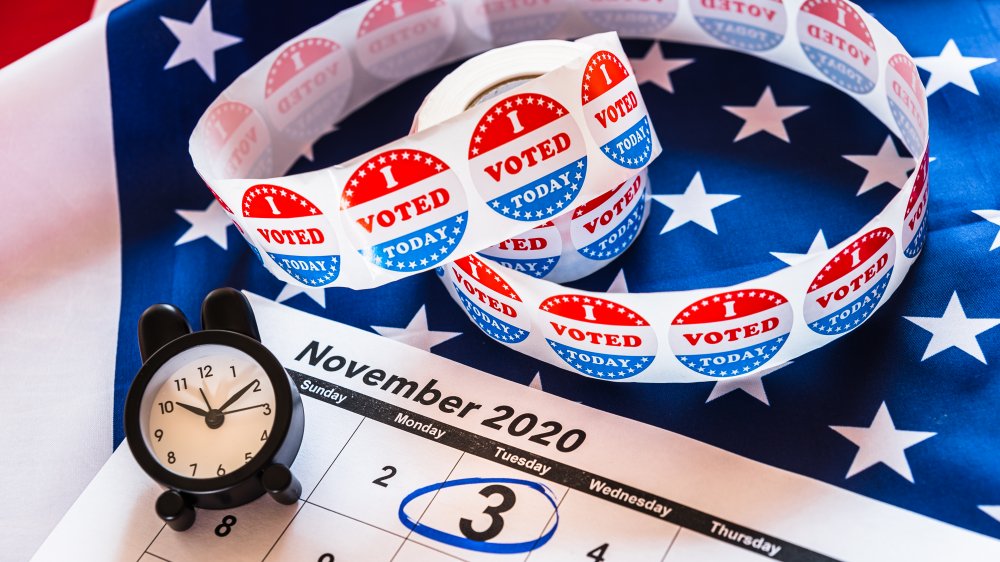The Best Way To Deal With Stress Caused By The Election
Like millions of other Americans, you likely woke up over these last few mornings feeling a certain level of stress as you checked for election results. Unfortunately, it might be days before the results are finalized and America knows who the next president will be. In the meantime, it's important to tame your stress and channel that energy into something more productive than doomscrolling (via Healthline).
Start by understanding that your heightened stress level is normal — elections have even been linked to a rise in heart attacks. A whopping 68 percent of voting-aged Americans reported that the election is a significant source of stress in their lives, according to the American Psychological Association (APA). It's so prevalent that it's even been dubbed election stress disorder. "We notice [the stress] in our bodies, the tension in our shoulders. Sometimes people get GI (gastrointestinal) upset or headaches. People have trouble sleeping. There's a lot of sleep disturbance going on right now — tossing, turning and worrying, and not being able to get to sleep—or having bad dreams about the election," psychiatrist Robert Bright told the Mayo Clinic.
Don't pretend that the stress doesn't exist for you. Instead, try to redirect that nervous energy to the task at hand, whether it's a work assignment, a knitting project, or a household chore you've been meaning to tackle, suggests Kelly McGonigal, author of theUpside of Stress (via Harvard Health Publishing). Stress is giving your body extra energy, she adds, so you might as well use it for something productive.
Lower your stress levels naturally
To lower your stress levels, turn off your notifications on your phone and skip watching the results on TV. You don't need minute-by-minute updates about what's happening, and the rapid news cycle playing 24/7 is likely adding to your stress levels, says the APA. Instead, go analog and spend some time journaling to give your brain a break from the constant chatter. According to Lisa Tams of Michigan State University, journaling can reduce stress by clearing your mind, getting rid of negative thoughts, and bringing your focus to the present moment rather than dwelling on the future. Add a list of a few things that you're grateful for: Practicing gratitude has been shown to decrease stress (via Psychology Today).
You can also reduce stress by getting outside in nature for a walk or a workout. A 2019 study showed that as little as 20 minutes outside can decrease stress levels. "For the greatest payoff, in terms of efficiently lowering levels of the stress hormone cortisol, you should spend 20 to 30 minutes sitting or walking in a place that provides you with a sense of nature," says Dr. Mary Carol Hunter, the lead author on the study. And adding exercise to your time in nature helps promote stress reduction thanks to the cascade of endorphins that your body will get as a side benefit to vigorous activity (via ScienceDaily). Plus, being outside means you're not in looking at your phone and refreshing your Twitter feed.


